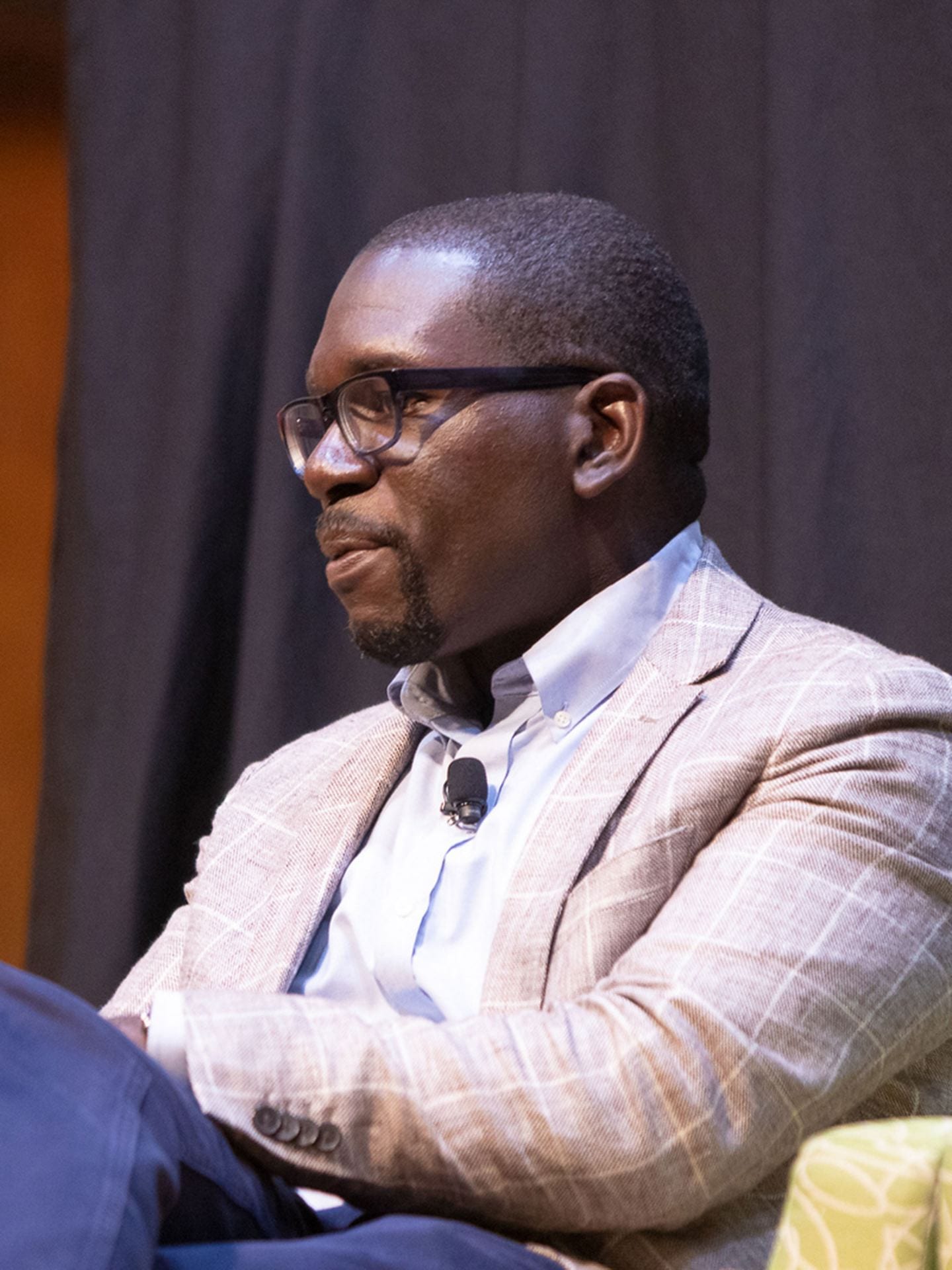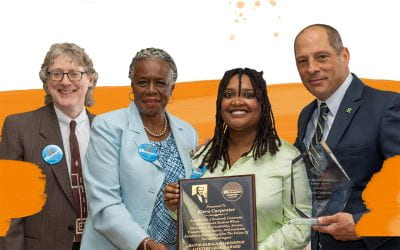Policing and Prison Reform
AMERICAN DREAM RECONSIDERED 2018by Monique Mitchell

The Policing and Prison Reform panel brought out an impassioned audience voicing their concerns on the issues of mass incarceration, racial and economic segregation, policing in lower-income communities, and reformation of the prison system and law enforcement.
Moderator Dr. Heather Dalmage, director of Roosevelt’s Mansfield Institute for Social Justice and Transformation, and panelists Elgin Holt, deputy chief of the Chicago Police Department (CPD); Natalie Moore, South Side reporter at WBEZ-FM; and Jamelle Bouie, chief political correspondent for Slate and political analyst for CBS News, led the weighty conversation.

(from left) Pat Harris, chair, Roosevelt Board of Trustees; Jamelle Bouie, political correspondent, Slate, CBS News; Ali Malekzadeh, president, Roosevelt University; Heather Dalmage, professor of sociology, Roosevelt University; Natalie Moore, South Side reporter, WBEZ; Elgin Holt, deputy chief, Chicago Police Department
“[The idea that] you don’t need to bring the force of the state onto vulnerable populations is a very powerful one, and is worth taking seriously.”
– Jamelle Bouie
Chief political correspondent for Slate and political analyst for CBS News
Dalmage began the discussion by reporting staggering statistics of the nation’s prison population, which includes 2.2 million incarcerated adults, 4.7 million adults on probation and parole, and approximately 60,000 incarcerated youths. Additionally, 450 out of 100,000 adult white Americans will be incarcerated, compared to 831 out of 100,000 Latino Americans and 2,306 out of 100,000 black Americans.
Each panelist weighed in on various contributing factors to the nation’s high incarceration rate. According to Bouie, the United States has always had an elevated incarceration rate, due to increased crime, the collapse of the industrial base, and a turn toward punitiveness as a solution to American lawlessness.
Moore, a Chicago native, greatly attributed mass incarceration to racial and economic segregation, while Holt, a lifelong Chicagoan and 1997 Roosevelt graduate, credited the entry of crack cocaine as a major factor. Per Holt, during his 33-year police career, the crack epidemic caused a strengthening of street gangs and increased neighborhood violence, homicides and arrests. Holt explained that it took CPD well over a decade to get control of the drug epidemic, but through community outreach and a stronger presence in impacted neighborhoods, the homicide rate dropped by nearly 60 percent.
For Moore, CPD’s increased presence in lower-income neighborhoods indicated a racial imbalance within the Chicagoland area. “The suburban use of heroin with young people is so strong,” she said. “Police officers do not arrest them, in the same way, we see in Chicago. When you have money and resources, and when you are protecting whiteness, it doesn’t come off the same way.”
A posed solution by an audience member to combat issues of over-policing in marginalized communities, non-accountability in cases of police brutality, lack of resources and guidance for the youth and those with criminal records, and the high number of those incarcerated for non-violent crimes was the abolishment of the police department and prison system. Holt considered the solution to be extreme and unrealistic, but explained that a restructuring of the institutions was needed, and has been applied to CPD through the dissent decree, which mandated further training for new and existing officers.
“There was a time before prisons and there can be a time after prisons,” Bouie said. “[The idea that] you don’t need to bring the force of the state onto vulnerable populations is a very powerful one, and is worth taking seriously.”

Jamelle Bouie
Chief political correspondent for Slate and political analyst for CBS News
More in this section
Opera’s leading role in transforming gender identity in the arts
Lucia Lucas is a force—both on stage and off. In April, Lucia made history during her debut at the Lyric Opera of Chicago as the first openly transgender person to perform there in a leading role.
Deserving of a truly special honor
Friends of Roosevelt recently gathered to recognize Kiera Carpenter, an aspiring environmental professional, as the inaugural recipient of the Mayor Harold Washington Legacy Scholarship.
In and beyond the multicultural classroom
Professor Yue Li helps students to not only recognize and embrace culture differences, but to see social hierarchies that create privilege and oppression.



